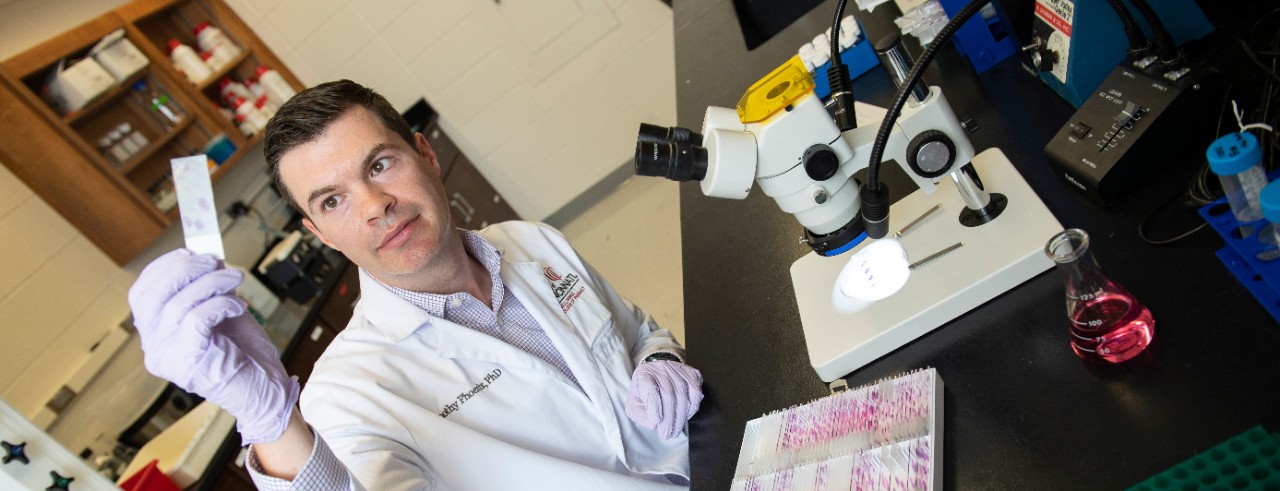
Medical Xpress: Researchers identify new target to treat pediatric brain tumors
UC's Timothy Phoenix part of team researching pediatric diffuse midline gliomas
Researchers have identified the role of a key gene that helps a type of pediatric brain tumor to grow, which could help develop better treatments.
Diffuse midline gliomas, formerly referred to as Diffuse Intrinsic Pontine Gliomas (DIPG), are tumors of the primary central nervous system, meaning they begin in the brain or spinal cord. Each year, approximately 200-300 children in the United States are diagnosed with this tumor that is commonly located in the brain stem, with a nearly zero percent survival rate.
Recent research published by the University of Cincinnati's Timothy Phoenix, PhD, assistant professor in UC’s James L. Winkle College of Pharmacy Division of Pharmaceutical Sciences and a UC Cancer Center member, as well as colleagues from the Dana-Farber Cancer Insitute, Broad Institute of MIT and Harvard and others, focused on a gene called PPM1D.
The researchers found PPM1D is a gene that helps promote the growth of the tumors and that drugs could potentially target this gene to treat patients. In animal models of the tumors, the tumor cells died when the gene was disabled.
Read the Medical Xpress article.
Read more about Dr. Phoenix's research into diffuse midline gliomas.
Featured photo at top of Dr. Phoenix: Photo/Colleen Kelley/UC Creative + Brand
Related Stories
Love it or raze it?
February 20, 2026
An architectural magazine covered the demolition of UC's Crosley Tower.
Social media linked to student loneliness
February 20, 2026
Inside Higher Education highlighted a new study by the University of Cincinnati that found that college students across the country who spent more time on social media reported feeling more loneliness.
Before the medals: The science behind training for freezing mountain air
February 19, 2026
From freezing temperatures to thin mountain air, University of Cincinnati exercise physiologist Christopher Kotarsky, PhD, explained how cold and altitude impact Olympic performance in a recent WLWT-TV/Ch. 5 news report.
